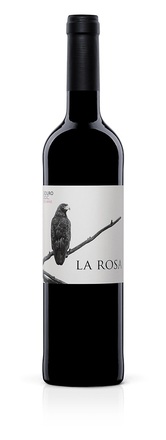
Quinta de la Rosa has been in the Bergqvist family since 1906 when it was gifted to current owner Sophia Bergvist’s grandmother, Claire, as a christening present. One of the first producers in the area to embrace the winemaking revolution in the early 1990s, La Rosa is now known for its premium wines and ‘drier style’ ports. The estate is located in the heart of the Douro’s dramatic Cima Corgo region, with its steep vines, schist soils, and dramatic views. La Rosa’s 60 hectares of vines start on the banks of the river with the majestic Vale do Inferno, whose immense dry stone terrace walls dominate the local landscape rising continually up to an elevation of around 500m, where the Lamelas vineyard sits overlooking the valley and it’s extremely varied topography. It is this topography that makes La Rosa special, as few Single Quintas have such varied terrior, or vines ranging from North to South facing.
The estate’s grapes are category A, the very best the Douro has to offer, and mostly consist of traditional port varieties, including Touriga Nacional, Touriga Franca, and Tinta Roriz. These varieties work in harmony with the schist soil to ensure that rich, full bodied wines have remarkable acidity, minerality, and freshness. Similarly, the ports focus on preserving the freshness and minerality seen in the wines, and are known for their distinctive ‘drier’ style which places particular importance on elegance and balance.
Jorge Moreira, one of Portugal’s finest winemakers, has been at Quinta de la Rosa since 2002 and has helped to establish their reputation as one of Portugal’s leading wineries.
La Rosa Estate Red is the most important wine in the collection, being the first wine that they produced in 1991. The majority of the grapes come from the Lamelas vineyard, planted by Tim Bergqvist more than 30 years ago, where the altitude and morning sun combine to ensure freshness. 50% Touriga Nacional, 30% Touriga Franca,15% Tinta Roriz, and 5% Sousão all from La Rosa’s estate. Matured for 12 months in mostly used French oak casks (70%). Although it is unmistakeably a Douro wine, the generous ripe fruit is balanced by acidity to ensure freshness, making it extremely versatile.